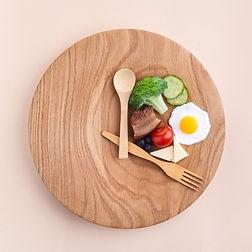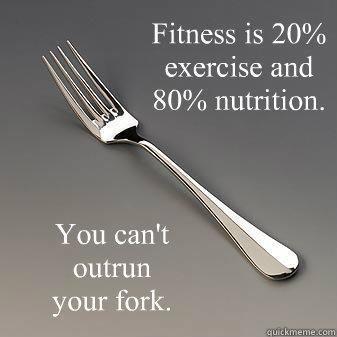
3 minute read
Time Poor? To Have or not to have BREAKFAST?
from Salus Well Being Magazine - Complementary Issue - “The most precious good of this life is health!”
The Breakfast Story
It is 6 o’ clock in the morning and ‘SleepIn’ has just woken up and only has 20 minutes to get ready to leave home for work. She is very hungry but does not have time to eat breakfast.
Advertisement
‘SleepIn’ knows that breakfast is a very important meal because she needs fuel to be able to think to do her work.
At 7:00 ‘SleepIn’ runs out of the house and jumps into her car. She arrives at work at 8:00.
‘SleepIn’ is very hungry and cannot concentrate on her assigned task and feels very irritable. She does not even want to talk to her good friend! By the time lunch finally comes at 11:45, ‘SleepIn’ feels horrible! She cannot wait to eat!
What should ‘SleepIn’ have done so she is not as hungry at lunch?
What time should she have gotten up if she needed 10 minutes for breakfast?
Any time you skip a meal, your body goes into “fasting mode”.

It begins to reduce energy output, in an effort, to protect both fat and lean tissue. In addition, as the lean tissues begin to shrink, they become weaker and perform less metabolic work, reducing energy expenditure even more. Hormones also slow down the metabolism to conserve lean body tissue.
This is also known as “starvation mode”. This mechanism is thought to have evolved as a defense against starvation. The body uses its calories efficiently in order to protect its fat stores, using lean tissue and muscle instead. A lowered metabolic rate is a direct result of muscle loss. Accordingly, fewer calories are needed, and weight loss slows down!
What about the last meal of the day?
Proper nutrition is needed all day, and the last meal of the day is no exception. You should be eating every 2-4 hours in order to increase your metabolism and maintain your lean muscle tissue. Skipping meals is very detrimental to your metabolism, and your health and fitness goals. Whether you are trying to lose body fat or gain muscle mass, you simply cannot lose body fat skipping meals and you cannot gain muscle by skipping meals.
Skipping the last meal of the day is a great way to slow your metabolism down and put body fat on.
Think about it!
Let us say you eat dinner at 6:00 PM, go to bed at 10:30 PM, wake up at 7:00 am and eat breakfast at 7:30 am.
That's 13.5 hours between your meal at dinner and your breakfast.. Your body is starving! Most of the time when it starves the next time you feed it, you have a greater chance of converting what you eat into fat.
You still burn calories and fat while you sleep. But not from skipping the last meal of the day!
Now burning calories is not as great when we sleep as when we are awake and moving around, but it still occurs. The most important factor for this is eating frequent meals throughout the day including before bed. The last meal is not as important as breakfast or your postworkout meal, but it is just as important as all the other meals of the day. The problem lies is 'what to eat before bed?' Most people eat the wrong things and that is where some of these myths about eating before bed have come from.
Rule of thumb is that you want your last meal of the day to be one of your smallest in terms of calories. The pre-bedtime meal is very important. It minimises a catabolic state (muscle and tissue breakdown). It is important to keep the metabolism running high.
You do burn calories and fat while you sleep. If you skip the last meal of the day your body goes into a catabolic state, and the next time you eat something your body will have a greater chance of storing it as fat. That is the vicious cycle when you skip meals. Metabolism drops, lean muscle tissue drops and body fat increases! So its better to have a small dinner.

The case for Breakfast!
Breakfast is the first meal after the long period from dinner. Therefore, any breakfast is better than no breakfast. However, a smart breakfast can get your body and brain going for a busy day and keep it going strong until lunchtime.
Youwanttofocusonfoodsthathavea slowdigestibilityandarehealthyfor you.
It has been proven that consuming sufficient calories is better than not getting enough. In addition, getting them on time, thus preventing energy deficit state during the day, is better than getting them late.








